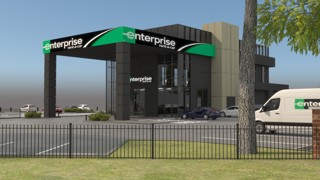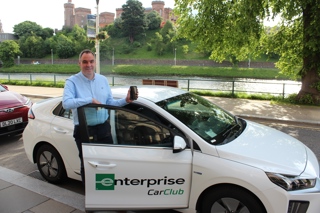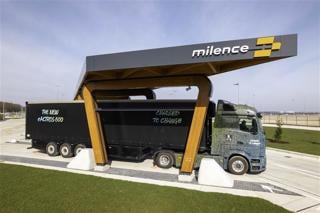The impact of the Covid-19 pandemic has forced many fleets to adapt to different ways of working and placed greater pressure on suppliers to offer products and solutions to help their customers overcome these new challenges.
Daily rental provision is a prime example of how suppliers have developed their services to offer much more than just a vehicle for a set period of time. It’s now about helping corporate customers manage areas such as their grey fleet and allow them to explore many other mobility options, for example car clubs.
Enterprise has been recognised for continually adapting its services to respond to fleets’ differing needs and it’s this approach that helped it to be named Best Rental Company of the Year in the Fleet News Awards for the fifth year running.
Fleet News: How has the pandemic changed the way companies think about business travel?
Joanne Vickers, head of sales – fleet, leasing and accident management: Journey planning is key, using data analysis to inform consultancy to reduce wholelife costs, identify new areas for efficiency and enable flexibility so businesses remain agile.
Many businesses still struggle to address grey fleet, especially as this became the preferred mode of travel during the height of the pandemic. Many still don’t even realise it’s a business problem.
How businesses use vehicles is central to their decarbonisation strategy. Fleets know they could reduce emissions more quickly – but how? Which vehicles and which journeys? This is where new solutions such as integrated transport programmes are helping organisations to model how they can reduce miles travelled and transition to more sustainable vehicles.
FN: What are the biggest challenges your fleet customers face?
JV: Optimising employee mobility in a changing landscape of virtual and hybrid working and with growing pressure to decarbonise is a central challenge which requires new solutions, especially given current economic pressures.
Other challenges are more subtle. Fleets need to change employee travel behaviours and practices such as grey fleet that may be culturally ingrained. They’re examining the potential of EVs at a time when the UK’s current charging infrastructure is evolving.
Some challenges are hidden or latent. Many customers don’t know the full impact of employee travel, especially among those working from home. This can make it hard to predict demand and lead to businesses enabling default travel choices such as grey fleet that lead to bigger long-term issues.
FN: What is your focus for 2022?
JV: We can see businesses are grappling with how to harness a workplace that’s changed out of all recognition and with business travel needs that are radically transformed. At the same time, the decarbonisation agenda is top of mind for all. Our primary focus is how rental can strengthen business performance and enable leaders to drive change.
That simple tool – picking up the exact vehicle you need, exactly when and where you need it – is a powerful one that can help reduce emissions and costs and streamline operations. We are talking to businesses about that potential.
FN: How do you see Mobility as a Service (MaaS)working in the UK?
JV: We’re involved in the UK’s only large-scale MaaS programme, the GO-HI app in the Highlands and Islands of Scotland. This provides great insight on how MaaS will help to decarbonise travel through greater use of shared mobility, even in a large-scale rural location.
The potential for decarbonising travel by providing a genuine alternative to just travelling by privately-owned vehicle is enormous. This was very much a pioneering project and it’s far too early to see how MaaS will evolve in the UK.
The main catalyst for change will continue to be the decarbonisation agenda.
FN: How has lack of vehicle supply caused by the semiconductor shortage affected your business?
JV: We have experienced a tightening in new vehicle supply, but we buy almost all our fleet on risk, so we can delay remarketing and hang onto vehicles for longer where we anticipate demand.
FN: What are the biggest challenges you face?
JV: Macro factors such as WLTP, Brexit, the decarbonisation agenda and, of course, the pandemic have caused considerable uncertainty for everyone and are continuing to cause disruption into 2022 and, potentially, beyond.





















Login to comment
Comments
No comments have been made yet.